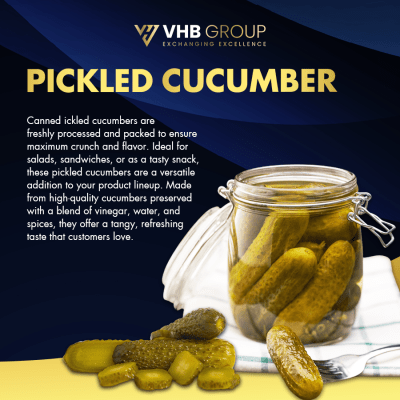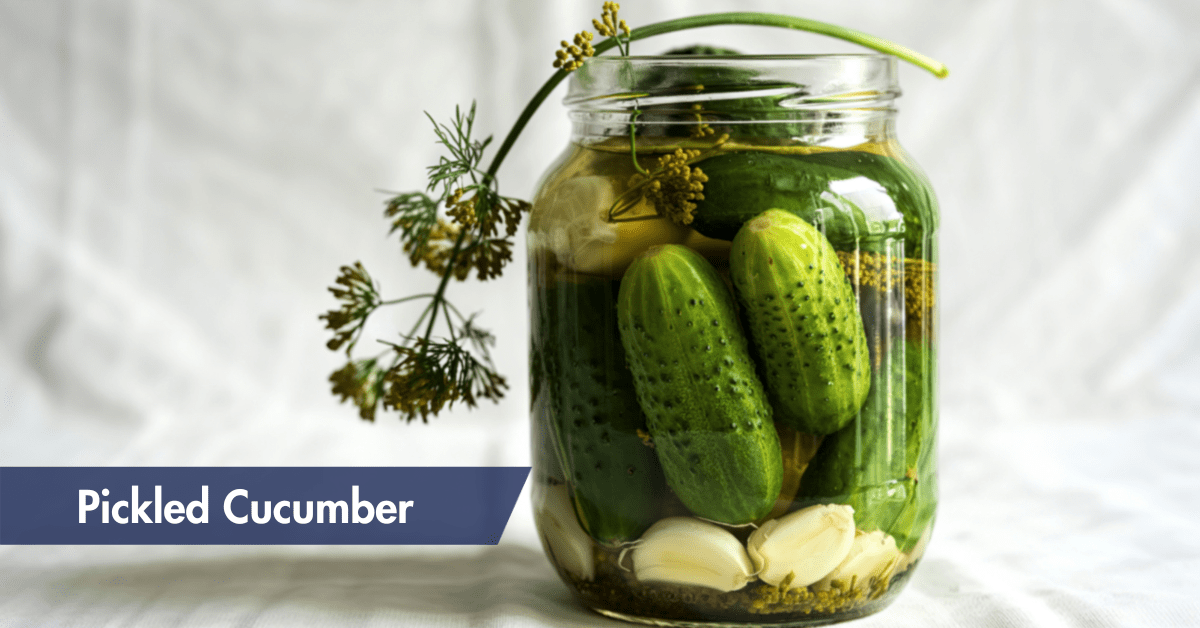Pickled cucumber, a staple condiment enjoyed globally, offers far more than just a tangy, satisfying crunch. Often overlooked in favor of flashier superfoods, it holds a unique position in the world of nutrition, particularly those varieties created through natural fermentation. For consumers seeking gut health benefits, essential minerals, and a low-calorie addition to their diet, the product proves an invaluable ingredient. Understanding its nutritional profile is key to maximizing its health benefits.
The Nutritional Breakdown of Pickled Cucumber
The exact nutritional content of a pickled cucumber depends heavily on its preparation method specifically, whether it is brine-cured (fermented) or vinegar-cured (quick pickle). However, both types retain many of the benefits of the raw cucumber while adding unique nutritional properties.
Low Calorie and Hydrating
At its core, a pickled cucumber remains low in calories and fat, making it an excellent snack or accompaniment for weight management diets. Cucumbers naturally contain high water content, and although the pickling process changes the liquid environment, the product still contributes to hydration. Most standard servings of pickled cucumber contain fewer than 10 calories.
Essential Vitamins and Minerals
Despite the brining process, the pickled cucumber retains several important micronutrients. You find significant levels of Vitamin K, a fat-soluble vitamin crucial for blood clotting and bone health. A single large pickled cucumber can supply a meaningful portion of the daily recommended intake.

Pickled cucumbers also provide moderate amounts of:
- Vitamin A: Important for vision and immune function.
- Potassium: An electrolyte essential for maintaining fluid balance and muscle function.
- Iron: Necessary for oxygen transport in the blood.
- Manganese: Involved in metabolism and antioxidant defense.
The minerals retained within the flesh of the product contribute significantly to its overall nutritional value.
Fiber and Antioxidants
Pickled cucumbers maintain the dietary fiber found in the original cucumber. Fiber supports digestive regularity and contributes to satiety, helping control appetite. Additionally, the skin and flesh of the pickled cucumber contain various antioxidants, including beta-carotene and lutein, which help combat oxidative stress in the body.
The Probiotic Power of Fermented Pickled Cucumber
The greatest nutritional distinction and health advantage lies with naturally fermented pickled cucumbers, those cured using only salt, water, and time, rather than relying on vinegar.
Gut Health and Probiotics
Fermentation creates a natural environment where beneficial bacteria (probiotics), primarily Lactobacillusspecies, flourish. When you consume these fermented pickled cucumbers, you introduce these live active cultures into your gut microbiome. A balanced gut microbiome is vital for:
- Improved Digestion: Probiotics help break down food, easing symptoms like bloating and indigestion.
- Enhanced Immunity: A large part of the immune system resides in the gut, and probiotics support its function.
- Nutrient Absorption: A healthy gut facilitates the body’s ability to absorb vitamins and minerals efficiently.
Always look for the product labels that specify “fermented” or “contains live cultures” to guarantee these probiotic benefits. Vinegar-cured pickled cucumbers offer great flavor and nutrients but generally lack these live probiotic cultures.
Consideration: Sodium Content
The primary nutritional consideration for all types of pickled cucumber is their sodium content, necessary for the brining and preservation process. Individuals managing hypertension or adhering to low-sodium diets should moderate their consumption of pickled cucumber. However, choosing low-sodium varieties or rinsing the product before eating can help mitigate sodium intake while still enjoying the flavor and other benefits.

